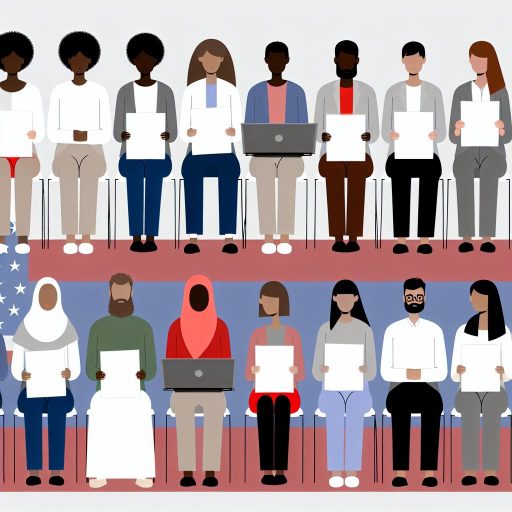Introduction:
Brief overview of the importance of child welfare specialists in the social work field
Child welfare specialists play a crucial role in ensuring the safety and well-being of at-risk children.
Definition of child welfare specialists and their role in protecting and supporting children in need
Child welfare specialists are trained professionals who work to safeguard children from abuse, neglect, and other harmful situations.
Education and Training for Child Welfare Specialists
- Discuss the educational requirements, such as a bachelor’s or master’s degree in social work or a related field.
- Highlight the importance of continuous training and professional development for child welfare specialists to stay updated on best practices.
Educational Requirements
In order to become a child welfare specialist, individuals typically need to have a minimum of a bachelor’s degree in social work or a related field.
This educational background provides the necessary foundation for understanding social issues, human behavior, and working with diverse populations.
Some positions may require a master’s degree in social work for advanced roles or specialized areas of practice.
Continuous Training and Professional Development
Continuing education and professional development are crucial for child welfare specialists to enhance their skills and knowledge in the field.
This ongoing training helps professionals stay current with the latest research, trends, and best practices in child welfare.
It also allows them to learn new interventions, strategies, and approaches to better serve children and families in need.
Child welfare specialists can benefit from participating in seminars, workshops, conferences, and online courses to expand their expertise and stay abreast of changes in policies and regulations.
Additionally, seeking certification or licensure in child welfare or social work can demonstrate a commitment to professional growth and competency in the field.
By engaging in continuous learning, child welfare specialists can improve their practice, better support clients, and advance their careers.
Skills and Qualities Needed
Child welfare specialists need to be able to understand and share the feelings of children and families they work with.
Clear and effective communication is crucial in building trust and rapport with clients.
Child welfare specialists must be able to think critically and find solutions to complex issues.
Understanding and respecting different cultural backgrounds is essential for working effectively with diverse populations.
Child welfare specialists should be aware of and responsive to the unique needs and challenges faced by children and families from different backgrounds.
- Empathy: Child welfare specialists need to be able to understand and share the feelings of children and families they work with.
- Communication skills: Clear and effective communication is crucial in building trust and rapport with clients.
- Problem-solving abilities: Child welfare specialists must be able to think critically and find solutions to complex issues.
- Cultural competence: Understanding and respecting different cultural backgrounds is essential for working effectively with diverse populations.
- Sensitivity to diverse needs: Child welfare specialists should be aware of and responsive to the unique needs and challenges faced by children and families from different backgrounds.
Discover More: Community Resources for Housing Coordinators
Job Responsibilities of Child Welfare Specialists
Child welfare specialists conduct home visits to assess living conditions.
They also evaluate family dynamics.
They evaluate risk factors such as domestic violence.
Transform Your Career Today
Unlock a personalized career strategy that drives real results. Get tailored advice and a roadmap designed just for you.
Start NowSubstance abuse and neglect are also assessed by them.
They develop safety plans to protect children from harm.
These plans ensure children’s well-being.
Child welfare specialists advocate for children’s rights.
They promote the best interests of children within the child welfare system.
They collaborate with other professionals and community resources.
This collaboration supports families in crisis.
They provide case management services to coordinate care.
This coordination is for children and families’ services.
Child welfare specialists participate in court hearings.
They provide testimony as needed to support cases.
They complete thorough documentation and reports.
These track progress and outcomes for children.
They participate in ongoing training and professional development.
This keeps them current on best practices.
- Conducting home visits to assess living conditions and family dynamics.
- Evaluating risk factors such as domestic violence, substance abuse, and neglect.
- Developing safety plans to protect children from harm and ensure their well-being.
- Advocating for children’s rights and best interests within the child welfare system.
- Collaborating with other professionals and community resources to support families in crisis.
- Providing case management services to coordinate care and services for children and families.
- Participating in court hearings and providing testimony as needed to support child welfare cases.
- Completing thorough documentation and reports to track progress and outcomes for children.
- Participating in ongoing training and professional development to stay current on best practices.
Uncover the Details: Community Health Worker Programs in the U.S.
Career Paths and Growth Opportunities
Child welfare specialists can advance to positions such as supervisor, program manager, or policy advocate.
Obtaining certifications in specialized areas can open doors for growth within the field.
Pursuing further education, such as a master's degree in social work, can lead to higher-level roles.
Some child welfare specialists may choose to focus on a specific population, such as foster care or adoption.
Transform Your Career Today
Unlock a personalized career strategy that drives real results. Get tailored advice and a roadmap designed just for you.
Start NowTransitioning into leadership roles allows professionals to impact policies and advocate for systemic change.
Working in research and evaluation positions can provide opportunities to shape best practices in the field.
Child welfare specialists can also explore roles in training and development to mentor new professionals.
Non-profit organizations and government agencies offer diverse career paths for child welfare specialists.
Networking within the industry can help professionals discover new opportunities for career growth.
Continuing education and staying current on industry trends are crucial for advancement in this field.
- Child welfare specialists can advance to positions such as supervisor, program manager, or policy advocate.
- Obtaining certifications in specialized areas can open doors for growth within the field.
- Pursuing further education, such as a master's degree in social work, can lead to higher-level roles.
- Some child welfare specialists may choose to focus on a specific population, such as foster care or adoption.
- Transitioning into leadership roles allows professionals to impact policies and advocate for systemic change.
- Working in research and evaluation positions can provide opportunities to shape best practices in the field.
- Child welfare specialists can also explore roles in training and development to mentor new professionals.
- Non-profit organizations and government agencies offer diverse career paths for child welfare specialists.
- Networking within the industry can help professionals discover new opportunities for career growth.
- Continuing education and staying current on industry trends are crucial for advancement in this field.
You Might Also Like: How Case Managers Advocate for Client Rights
Challenges of Working in Child Welfare
- High caseloads can lead to overwhelming workloads.
- Exposure to traumatic situations can cause emotional strain.
- Burnout is common due to the emotionally demanding nature of the job.
- Navigating complex family dynamics and legal systems can be challenging.
- Working with limited resources can make it difficult to provide adequate support.
Rewards of Working in Child Welfare
- Making a positive impact on the lives of children and families.
- Being a voice for those who are vulnerable and in need of advocacy.
- Building meaningful relationships with clients and seeing their growth.
- Contributing to systemic changes that improve the overall well-being of communities.
- Personal and professional growth through continuous learning and development.
Learn More: Why Employment Specialists Are Essential in Today’s Economy

When working in child welfare, maintaining a healthy work-life balance is crucial for overall well-being.
Setting Boundaries to Protect Mental Health
Establish clear boundaries between work and personal life.
This practice helps prevent burnout and maintain mental health.
Practicing Self-Care to Reduce Stress
Engage in activities that promote relaxation.
Examples include exercise, meditation, or hobbies.
Seeking Support from Colleagues and Supervisors
Reach out to colleagues for guidance, advice, and emotional support when needed.
The Critical Role of Self-Care in Child Welfare
Self-care is vital in preventing burnout and compassion fatigue.
These issues are common in the demanding field of child welfare.
By prioritizing self-care and establishing boundaries, child welfare specialists can sustain their passion for helping others.
They also maintain their own well-being effectively.
Networking and Professional Development Opportunities
- Offer suggestions for child welfare specialists to network with other professionals in the field, such as joining professional organizations, attending conferences, and participating in training workshops.
- Emphasize the value of networking and continuous learning in advancing one’s career and staying connected to the latest trends and resources in child welfare.
Networking plays a crucial role in the career growth of child welfare specialists.
By connecting with other professionals in the field, individuals can expand their knowledge, gain new perspectives, and build valuable relationships.
Transform Your Career Today
Unlock a personalized career strategy that drives real results. Get tailored advice and a roadmap designed just for you.
Start NowHere are some suggestions to help child welfare specialists make the most of networking opportunities:
- Join Professional Organizations: Child welfare specialists should consider joining professional organizations such as the National Association of Social Workers (NASW), the Child Welfare League of America (CWLA), or the American Public Human Services Association (APHSA).
- Attend Conferences: Conferences are excellent opportunities for child welfare specialists to network with professionals from across the country and even internationally.
- Participate in Training Workshops: Continuous learning is essential for professionals in the child welfare field.
These organizations offer networking events, conferences, and resources that can help professionals stay informed about industry trends and connect with like-minded individuals.
Attending conferences allows individuals to learn from experts in the field, exchange ideas, and explore new approaches to child welfare practice.
Some popular conferences for child welfare specialists include the National Child Welfare Evaluation Summit and the Children’s Bureau National Child Welfare Evaluation Summit.
By participating in training workshops, child welfare specialists can enhance their skills, stay current on best practices, and gain new insights into working with vulnerable populations.
Organizations like the Child Welfare Training Collaborative offer a variety of workshops on topics such as trauma-informed care, cultural competency, and case management strategies.
Networking and continuous learning are key to advancing one’s career in child welfare.
By actively participating in professional development opportunities, child welfare specialists can stay up-to-date on the latest trends and resources in the field.
They can build a strong support system of colleagues and ultimately make a positive impact on the lives of children and families in need.
Education and Growth Opportunities for Child Welfare Specialists
Education plays a significant role in preparing child welfare specialists for their responsibilities.
Acquiring essential skills enhances their effectiveness in this important field.
Prospects for professional growth encourage continued learning and development.
Individuals interested in child welfare should continually seek education and further training.
Such efforts help to improve their abilities and service quality.
Numerous resources exist to guide those considering a career in child welfare.
These resources offer valuable information for embarking on a fulfilling career path.
They also assist in navigating the complexities of the child welfare sector.
Additional Resources
Child welfare | Colorado Department of Human Services
Are You Interested in a Career with DCFS?
[E-Books for Sale]
The Big Book of 500 High-Paying Jobs in America: Unlock Your Earning Potential
$19.99 • 500 High-Paying Jobs • 330 pages
Explore 500 high-paying jobs in America and learn how to boost your career, earn more, and achieve success!
See All 500 High-Paying Jobs of this E-Book
1001 Professions Without a Degree: High-Paying American Jobs You Can Start Now
$19.99 • 1001 Professions Without a Degree • 174 pages
Discover 1001 high-paying jobs without a degree! Unlock career tips, skills, and success strategies for just $19.99!




